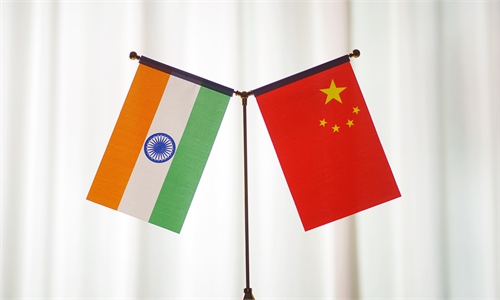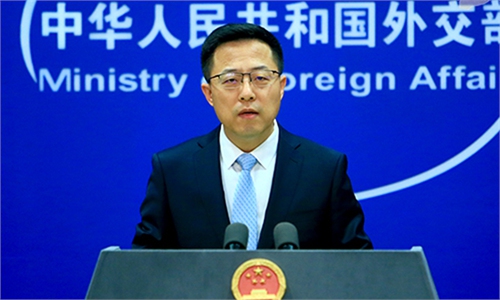
Illustration: Chen Xia/Global Times
Backed by China's strong economic fundamentals, yuan-denominated equities and bonds are increasingly favored by global investors. It is anticipated that, throughout 2022 and beyond, the yuan will remain to be a "safe haven" currency, and most likely to win a larger market share of international settlements.
Since the beginning of the year, renowned financial organizations including Credit Suisse, HSBC and Goldman Sachs have kept releasing notes recommending investors to adjust their portfolio by increasing their positions in Chinese assets. If factoring in the latest geopolitical crisis in Ukraine and the heightened tensions between Washington and Moscow, snapping up yuan assets is likely to remain in vogue.
All over the world, central banks are preparing plans to tighten their monetary policies in order to rein in surging inflation, but not in China, which reported only 0.9 percent annualized consumer price rises in January. The setting reflects that China owns more leeway to jumpstart its giant economy whenever it is needed, with incremental monetary and fiscal easing measures, while the US and other major economies cannot.
The macro differential decides Chinese yuan-denominated assets will become more attractive to investors than other economies' equities and bonds, although an estimated 100-150 basis-point increase in interest rates by the US Federal Reserve in 2022 to curb the country's skyrocketing inflation may lure some funds to the US.
And, in the course of the Fed's "quantitative tightening", many developing economies, such as Mexico, Turkey, Vietnam and India, may feel the pinch due to the expected outflow of capital from those countries back to the US. But China will continue to be a staunch and tenacious magnet for overseas investment. The yuan now hovers at around 6.32 against the US dollar, its highest level in four years.
The Russia-Ukraine conflict has become the latest wild card for the investors who are already concerned with global supply chain disruptions, the 7.5 percent inflation rate in the US and the still-raging coronavirus pandemic in the world. The whipsawing of the US financial markets is unlikely to stop and may exacerbate because no one knows for sure how the East European geopolitical tussle between the US and Russia will unravel.
The situation is too fluid, because the harsh economic sanctioning measures imposed by the Biden administration and a litany of America's close allies on Russia are likely to entice even more drastic response from Moscow.
With the European crisis as a backdrop, turbocharged bullish bets on the US stocks in 2021 were gone as investors become nervous. Voluminous sell-offs of their equities are ongoing, with both the Nasdaq Composite and S&P 500 indexes now entering correction territory. Take two leading American companies for an example, Nvidia and Tesla shares have fallen more than 20 percent and 23 percent, respectively, since the beginning of this year.
Historically, high banking interest rates are inversely correlated to corporate profit margins as rising cost of capital eats into earnings, and growing labor, energy, distribution and commodity costs all add up to dent margins. Therefore, the volatility in the US financial market is poised to escalate in the coming weeks, driving away investors from buying its assets.
China's strength of economic fundamental have been sustained, despite its monetary policy independence that has seen the People's Bank of China, the central bank, opting for monetary easing, in stark contrast with the US-led cycle of interest rate hikes. That strength is attributed in part to a shift toward yuan assets, now taken as a resilience choice by investors.
From an overall investment perspective, yuan-denominated assets will prove the more attractive proposition. Take the 10-year Chinese government bonds for an example, the yield of the specific bond was at 2.82 percent at Friday's close, compared to 1.97 percent yield of the US government's 10-year bonds. If viewed on an inflation-adjusted basis, Chinese bonds' nominal yield will be more favored by investors.
And statistics also points to the fact that overseas investors have continued to buy into Chinese assets in January. Overseas holdings of China's interbank bonds reached 4.07 trillion yuan ($641 billion) at the end of January, according to China's central bank data. At the same time, investors are buying into Chinese stocks through the Hong Kong-Shanghai and Hong Kong-Shenzhen Connect arrangements.
And additionally, China's Ministry of Commerce announced in January that the country saw overall foreign direct investment inflows spike more than 20 percent last year to reach $173.5 billion. Also, China, the world's manufacturing powerhouse, is expected to witness another year of vigorous exports. All these factors are to bolster a stronger yuan.
The author is an editor with the Global Times. bizopinion@globaltimes.com.cn



